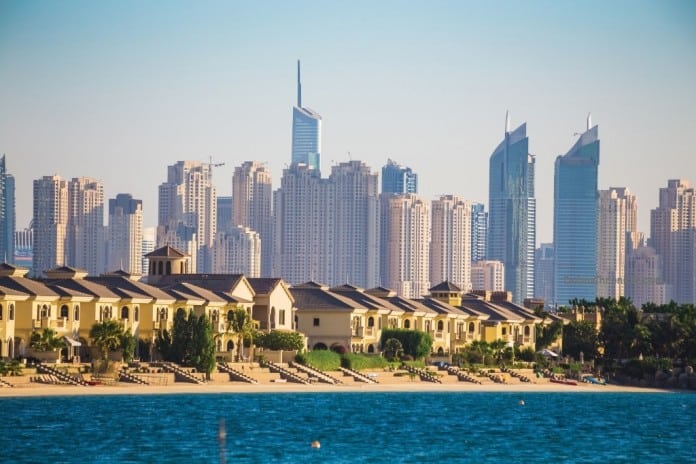
- In six months to March 2017, rental yields fell in 15 of Dubai’s 23 apartment neighbourhoods and in 11 of the city’s 16 villa districts
- Abu Dhabi yields also broadly down, while Northern Emirates hold steady
Yet yields remain excellent versus international norms - Yields for UAE buy-to-let investors are in retreat as declines in rental values outpace a slump in sales prices, according to exclusive data featured in Propertyfinder Group’s UAE Real Estate Trends 2017 report.
Nevertheless, yields remain generous compared with global norms and with zero capital gains tax the country’s property sector remains an excellent option for international investors looking for both investment income and long-term asset appreciation.
Propertyfinder Group, the Middle East and North Africa’s leading real estate portal, analysed apartment and villa sales and rental prices in Dubai, Abu Dhabi and the Northern Emirates.
Rental yields fell in 15 of Dubai’s 23 apartment neighbourhoods and in 11 of the city’s 16 villa districts in the six months from September 2016 to March 2017. These declines left apartment yields varying from 5.2% on Palm Jumeirah to 9.5% in Discovery Gardens. For villas, yields range from 3.1% in Emirates Hills to 6.5% in Jumeirah Village Circle.
Unsurprisingly, Dubai’s peripheral areas – deemed a higher risk by many investors and therefore priced accordingly – offer some of the best yields. Of the 10 districts with per square foot selling prices below 1,000 dirhams, Motor city provides the lowest yield at 7.9%.
“Dubai continues to be a multi-tiered market where the most desirable locations offer the worst rental yields, while the best yields are found in emerging communities surrounded by desert and mass construction,” states Propertyfinder’s report, which is available for free download at propertyfinder.ae.
“Here, market forces present a neat risk versus reward synopsis. Blue Chip communities for investors are deemed to be safer and, despite their popularity, have a relatively smaller pool of well-heeled tenants who can afford over 120 dirhams per square foot per annum in rent.”
Rental values fell by a greater margin than sales prices, largely following the same trend in each neighbourhood. This suggests landlords have proved more willing to cut their asking prices than those wishing to sell and perhaps points to ebbing demand and over-supply in the rental sector.
“Emerging communities cater to that large and growing middle income segment seeking affordable rents but for buyers there are many, many projects and apartments complete, under construction and off plan to choose from so these communities tend to be less liquid,” the report states.
“If the villa community is relatively affordable, the rental yield is healthy but they
steadily decline as you move up the food chain. Emirates Hills and Palm Jumeirah both offer villa yields of around 3.1% which in virtually any other market in the world is acceptable, but in Dubai appear distinctly lacklustre.”
ABU DHABI, NORTHERN EMIRATES
Abu Dhabi, the world’s fifth largest oil producer, has suffered markedly more from the sustained slump in crude prices than Dubai, where oil makes little direct contribution to the economy.
As such, it’s no surprise that Abu Dhabi’s property sector is showing prolonged weakness. Sale prices fell in four of six apartment districts and in six of eight villa neighbourhoods, while rental value declines were mostly of a bigger magnitude.
Yields remain excellent, despite the drop in rental values – apartment yields are 7% or higher in all districts, with Al Reef the largest at 8.6%. Villa yields also outperform Dubai, ranging from 5% on Saadiyat Island to 7.8% in Hydra Village. Overall, yields fell in eight of 12 neighbourhoods for villas and apartments.
In the Northern Emirates of Sharjah, Ajman and Ras Al Khaimah (RAK) yields were steady as prices and rentals showed relatively little movement. Apartment yields slipped to 6.5% from 6.7% and villa yields rose to 6.0% from 5.7%.
“For investors, the rental yield in Sharjah and Ajman in particular look particularly enticing,” the report adds. “We’ve seen some launches of freezone, off-plan projects recently in Sharjah which is now competing with Dubai and RAK for non-GCC buyers.”




































